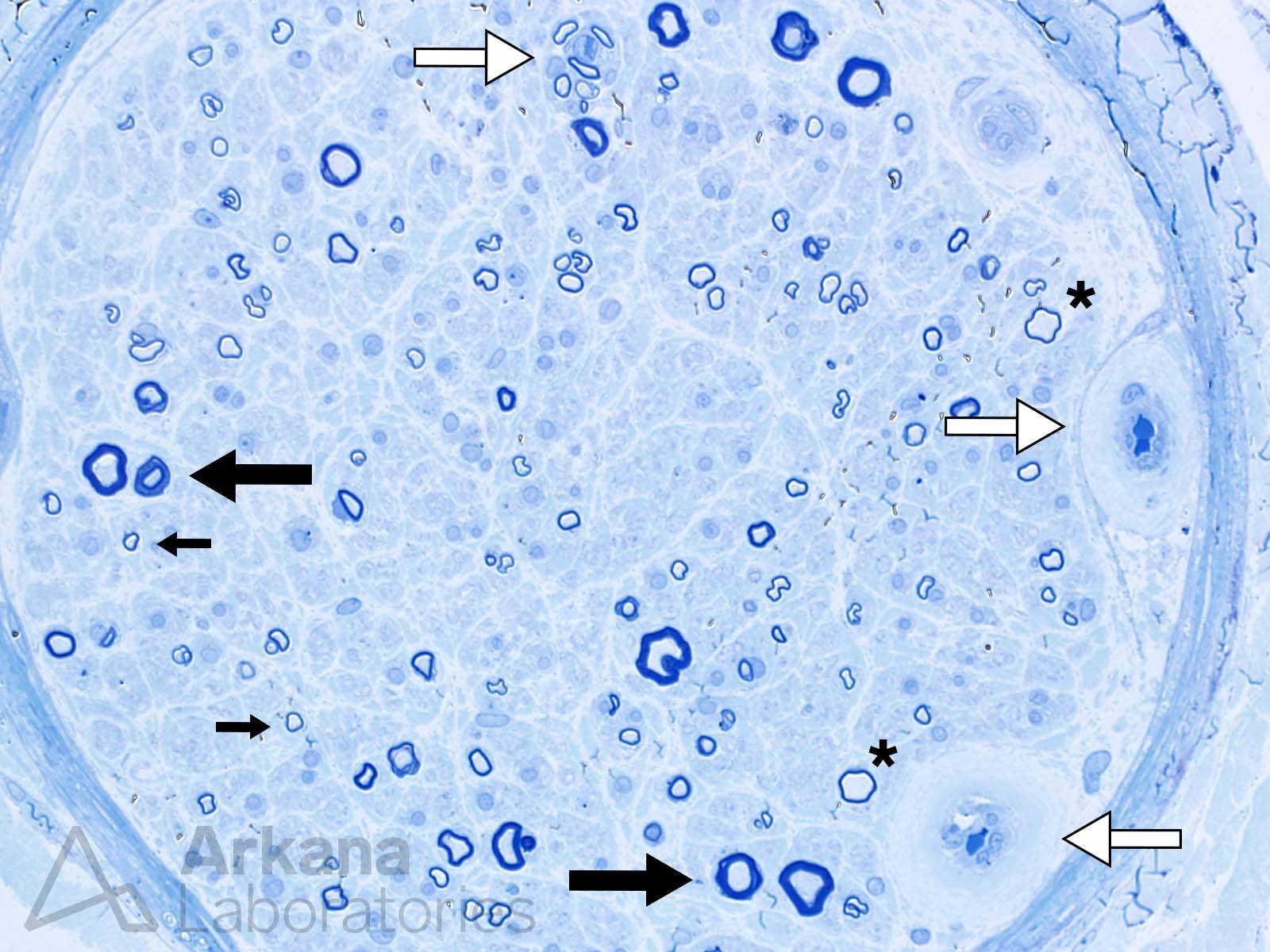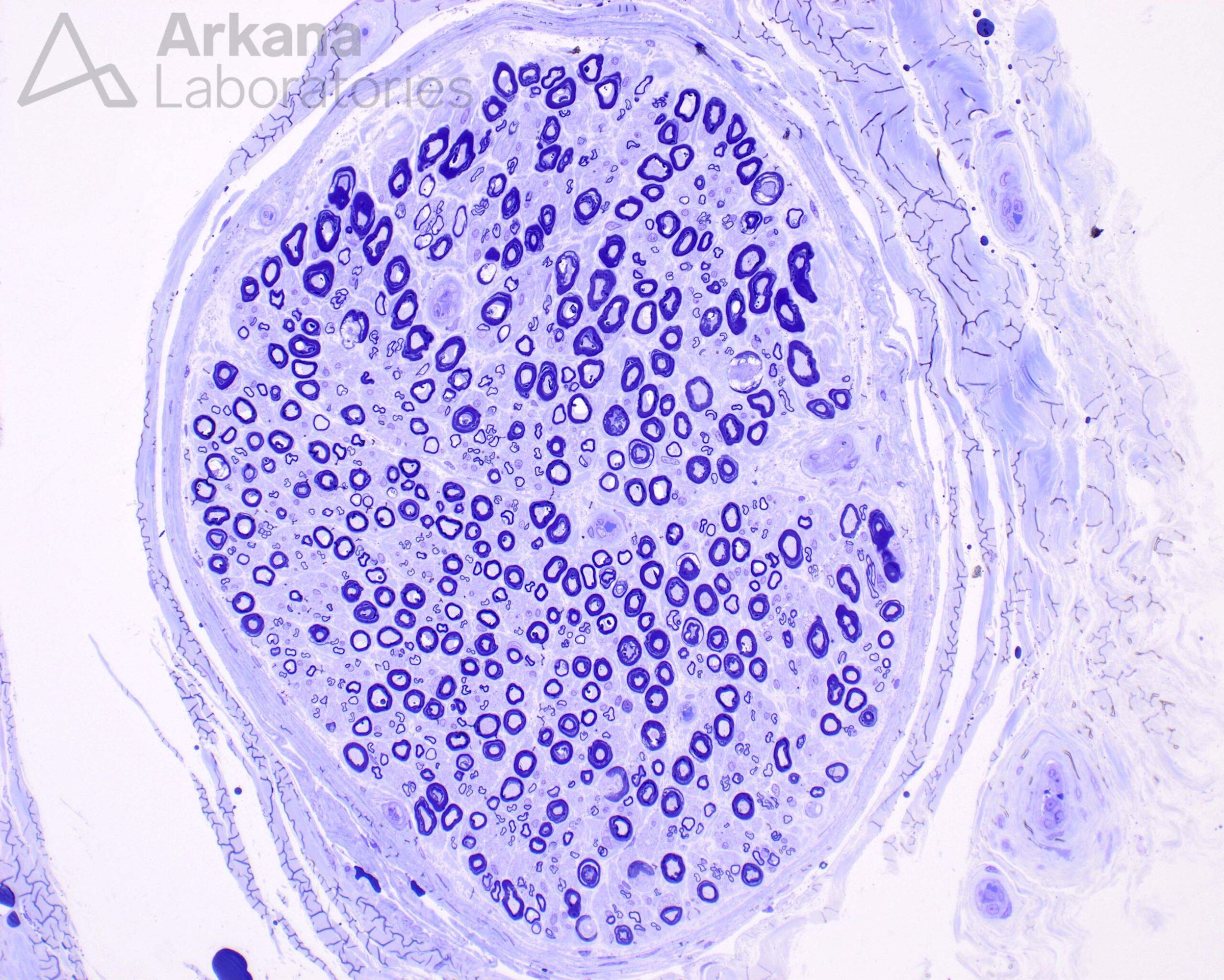
This patient presented with a multiple-year history of progressively worsening numbness and tingling which began in their feet and progressed to involve their ankles and hands (i.e. symmetric bilateral “stocking-glove” distribution). Sural nerve biopsy was performed.
What abnormalities can you find in Figure #1?
A. Myelinated axon loss
B. Regenerated clusters
C. Thickened blood vessels
D. All of the above
Answer: All of the Above
Thick sections prepared from glutaraldehyde fixed EPON embedded biopsy tissue provide the best morphology for the evaluation of peripheral nerve.
This image shows a peripheral nerve fascicle in the cross-section. The nerve fascicle shows diffuse marked loss of large diameter and small diameter myelinated axons (the small diameter unmyelinated axons are not visualized at this resolution). A few regenerated clusters are present and indicate prior axonal injury with subsequent successful recovery. The small endoneurial blood vessels show significant hyaline thickening of their walls due to reduplication of perivascular basement membrane material. An additional finding, in this case, is the presence of occasional thinly myelinated large-diameter axons. Teased nerve preparation is useful in determining whether the thinly myelinated axons are due to axonopathy versus demyelinating process (i.e. presence of diffuse thin-short internodes versus segments of thin-short internodes).
This particular patient had a history of Type 2 Diabetes. The overall morphologic alterations are consistent with the presence of diabetic polyneuropathy.
References/Additional Reading
Weis J, Brandner S, Lammens M, Sommer C, Vallat JM. Processing of nerve biopsies: a practical guide for neuropathologists. Clin Neuropathol. 2012 Jan-Feb;31(1):7-23. doi: 10.5414/np300468. PMID: 22192700; PMCID: PMC3663462.
Quick note: This post is to be used for informational purposes only and does not constitute medical or health advice. Each person should consult their own doctor with respect to matters referenced. Arkana Laboratories assumes no liability for actions taken in reliance upon the information contained herein.


